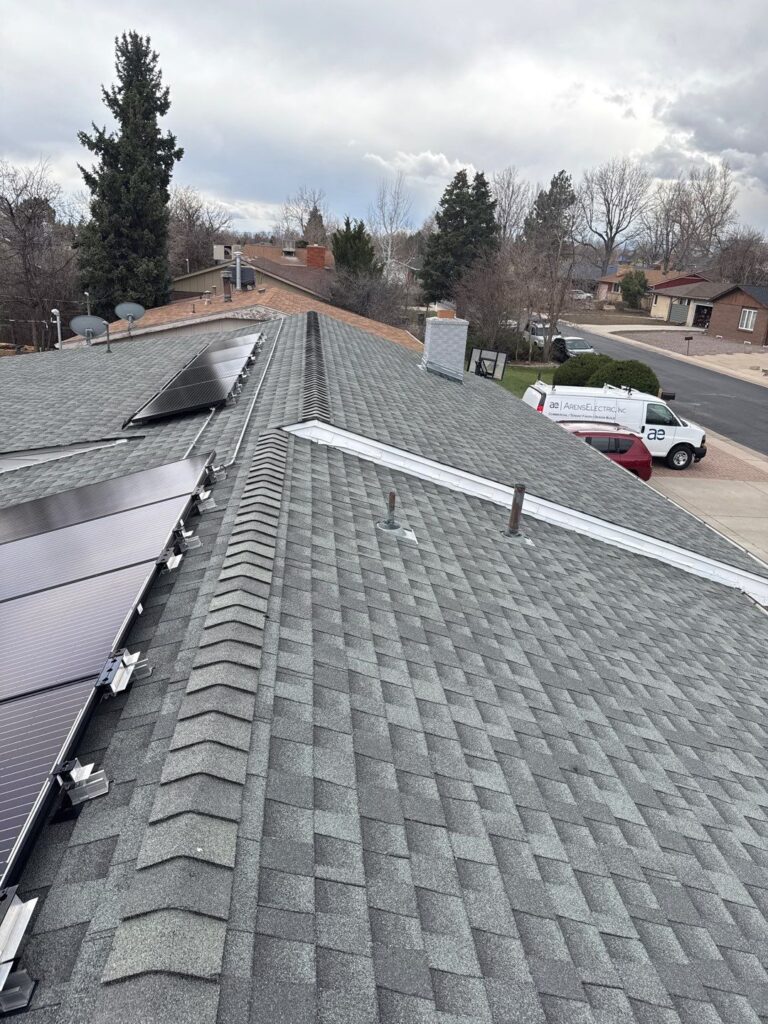Understanding the Climate Challenges of Roofing in Denver
Roofing in Denver poses unique challenges due to its semi-arid climate, temperature fluctuations, hailstorms, and snow loads. These weather patterns accelerate wear on roofing systems, particularly on asphalt shingles and flat roofs. Regular maintenance and timely repair are crucial to mitigate the risk of moisture intrusion, thermal cracking, and structural stress. Ignoring early signs of damage often leads to extensive repairs or premature replacement.
Top Indicators That Your Roof Needs Immediate Attention
Denver roofers consistently report a series of telltale signs indicating a roof is in decline. Recognizing these early can prevent extensive internal damage:
- Curled or Missing Shingles: High winds and ice dams can rip or warp shingles. These openings expose the roof underlayment to moisture, leading to rot.
- Interior Water Stains: Discoloration on ceilings or walls often points to flashing failure or a punctured membrane.
- Sagging Roof Planes: A visible dip or depression in the roof line often indicates water saturation in the roof decking.
- Excess Granule Loss: Accumulations of granules in gutters signal aging shingles that are no longer effectively shielding against UV rays.
- Moss and Mold Growth: Persistent shade and moisture accumulation can support moss or algae, which weakens shingle integrity over time.
Proactive identification of these issues and engagement with a professional roofing company in Denver ensures swift remediation and cost-effective solutions.
Common Roof Repairs Required in Denver Homes
Given the intense sun exposure and hail impact in the region, Denver roofing contractors are frequently called to address specific repair categories:
Shingle Replacement and Underlayment Repairs
Asphalt shingles are particularly vulnerable to Denver’s freeze-thaw cycles. Cracked or blown-off shingles compromise waterproofing. Timely replacements prevent water penetration and insulation damage.
Flashing and Sealant Restoration
Chimneys, skylights, and vent stacks often require flashing rework. Sealants degrade under UV radiation, and resealing or replacing metal flashing helps prevent leaks at joints and roof intersections.
Ice Dam and Gutter Remediation
Ice dams caused by poor attic insulation and roof ventilation force water back under shingles. Installing proper heat cables and ensuring free-flowing gutters significantly reduce winter damage risks.
Decking Replacement
Severe leaks may compromise the wood decking beneath the roof covering. Sections of rotted sheathing are replaced to restore structural support and prepare the surface for re-roofing.
Choosing the Right Roofing Contractor in Denver
Selecting the right Denver roofing contractor can determine the longevity and quality of your roof repairs. Homeowners should evaluate:
- Local Experience and Licensing: Choose contractors familiar with Denver’s permit requirements, climate challenges, and roofing codes.
- Verified Reviews and Referrals: Seek feedback from neighbors and community platforms. Consistent positive feedback signals reliability.
- Comprehensive Inspections and Transparent Quotes: A trusted contractor should offer photographic evidence of issues, clearly itemized estimates, and warranties on both labor and materials.
Partnering with a reputable roofing company in Denver, such as Tried and True Roofing, ensures expert craftsmanship and local knowledge tailored to Denver, Colorado’s specific conditions.
Budgeting for Roof Repairs: What Denver Homeowners Should Expect
Roof repair costs in Denver vary depending on the extent of damage, roof size, and material type. Here are general benchmarks:
| Repair Type | Average Cost (Denver, CO) |
| Minor Shingle Repairs | $250 – $600 |
| Flashing Replacement | $400 – $1,200 |
| Leak Repair | $350 – $1,000 |
| Decking Replacement | $800 – $2,500+ |
| Ice Dam Prevention System | $1,200 – $3,500 |
It’s wise to maintain an emergency fund for roofing issues. Many homeowners also consult insurance providers, as storm-related damage may be covered. Additionally, several Denver roofing companies offer financing options for larger repairs or replacements.
Preventive Roof Maintenance Tips for Long-Term Protection
Maintenance plays a critical role in extending roof lifespan and avoiding costly emergency repairs. Implement these best practices:
- Biannual Inspections: Schedule roof inspections each spring and fall, focusing on flashing, valleys, and drainage points.
- Gutter Cleaning: Remove debris to ensure water flows away from the roof and foundation. Blocked gutters are a major cause of leaks and ice dams.
- Tree Limb Management: Trim branches that could scrape shingles or collapse during storms.
- Attic Ventilation and Insulation Checks: Improper airflow leads to condensation and ice damming, shortening the life of both the roof and HVAC systems.
- Seal and Paint Roof Penetrations: Regularly check around chimneys, pipes, and vents for worn caulking and rust.
Consistent maintenance significantly reduces emergency repair needs and optimizes energy efficiency.
Conclusion
Denver homeowners face unique roofing challenges, but with vigilant maintenance, early repair, and qualified local contractors, long-term roof performance is achievable. Addressing minor issues promptly prevents them from escalating into structural failures and costly water damage. With a strategic approach and attention to detail, your roof will continue to protect your home against Colorado’s ever-changing climate.


